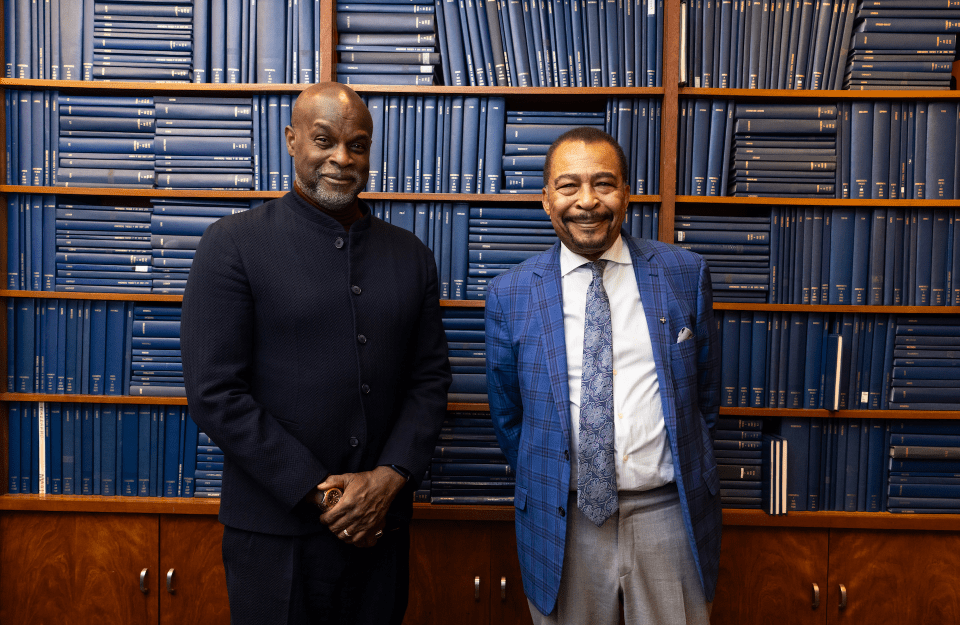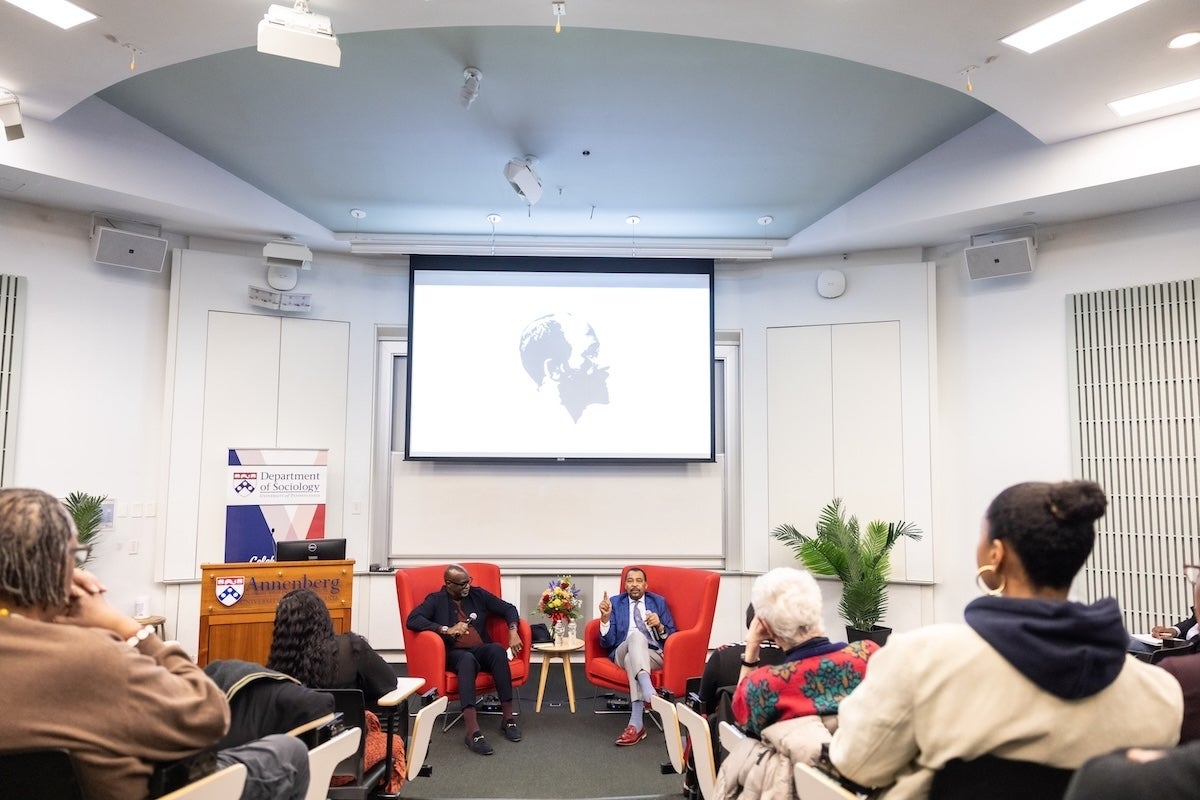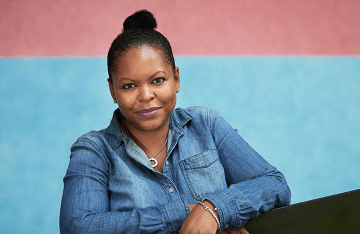The Legacy of W.E.B. Du Bois: ‘Something Fresh To Say’
At the 2nd Annual W.E.B. Du Bois Lecture in Public Social Science, sociologists Alden Morris and Tukufu Zuberi discuss Du Bois’ contributions to the field and to humanity.

Tukufu Zuberi (left) and Aldon Morris (right) discussed the legacy of W.E.B. Du Bois in a Feb. 23 lecture. (Photo Credit: Eddy Marenco)
Sociology is the study of society, of human structures, relationships, and behaviors. The founders of sociology include household names like Karl Marx, Max Weber and now W.E.B. Du Bois. But this wasn’t always the case.
In the 2nd Annual W.E.B. Du Bois Lecture in Public Social Science, Aldon Morris, the Leon Forrest Professor of Sociology and African American Studies at Northwestern University, reminisced with Tukufu Zuberi, the Lasry Family Professor of Race Relations in Africana Studies and Sociology in the School of Arts & Sciences, about discovering Du Bois on his own as a college student. In graduate school, he said, they read the works of white men.
“I remember thinking,” Morris said, “nobody Black ever said anything important that we have to read, that we have to memorize, that we have to take comprehensive exams on?”
While Morris and his cohort read about the concept of the Protestant ethic and how essential it was to the creation of the modern world, about Marxism and class struggle, about dependency theory put forth by Argentine statesman Raúl Prebisch, he felt something was missing. “Slavery,” Morris said, “is not a part of classical sociology,” and this is why Du Bois’ contributions are so important. “We cannot understand the modern world and what is going on if we don’t understand the role of slavery, colonialism, racism,” he said.
“Du Bois was one of the greatest intellectuals that America, and indeed the world, has ever produced,” Morris said. Du Bois was the first African American to earn a doctorate from Harvard College, where he graduated with a degree in history in 1890. Morris noted that a degree in sociology was not offered at Harvard at the time.
Du Bois later spent a year at the University of Pennsylvania, where he conducted research in Philadelphia’s Black neighborhoods for his book “The Philadelphia Negro” (1899). Still considered to be a seminal work, “The Philadelphia Negro” demonstrated the negative effect of segregation, leading Du Bois to advocate for integration as the key to achieving equality among races.
“But beyond being a scholar, beyond being an intellectual, he was one of the greatest activists,” Morris said. He and Zuberi discussed Du Bois’ productivity, both in academia as well as his role in the Civil Rights Movement. Du Bois was one of the founding members of the National Association for the Advancement of Colored People (NAACP) and the longtime editor of the organization’s magazine, The Crisis.
“He held those things in a seamless manner,” Morris said. “I do not believe that there is any inherent tension between scholarship and activism. I believe that they cross-fertilize each other.”

Zuberi asked Morris about his own desire to be both a scholar and an activist, but Morris noted that this was not always the case. “I didn’t always want to be a scholar and activist,” Morris said. “I was raised in this society to work in factories.”
Like many of his generation, Morris wound up in community college because he was trying to stay out of the Vietnam War, he said. “I didn’t know university people.”
Once at college, Morris read Du Bois’ “The Souls of Black Folk,” a collection of sketches and essays now considered foundational to the field of sociology, where Du Bois develops the concept of “double consciousness,” saying that Black people are at all times cognizant of both their own self-image as well as of how the world views them.
Morris, who was born in Mississippi and later moved to Chicago, became active in the Civil Rights and Black Power movements early on. But it was after reading “The Souls of Black Folk” that “I got hooked on sociology and scholarship,” Morris said. “I went into sociology because I wanted to help change the world.”
An award-winning scholar, educator, mentor, and civil rights activist, Morris has published a number of articles and books, including “The Scholar Denied: W. E. B. Du Bois and the Birth of Modern Sociology,” in which he argues that Du Bois’ contributions to sociology were suppressed for decades due to institutional racism.
One of the audience members asked if there was again a risk for Du Bois to fall back into obscurity, noting that those recognized as the “founders” of sociology has changed over time.
In previous decades, if a junior scholar wanted to study Du Bois, “you were told you were going to waste your time,” Morris said. “We have legitimized this topic, this research agenda, so it cannot be excluded on a whim.”
Many young scholars are interested in Du Bois, in addition to established professors like himself and Zuberi, Morris said. “If we have anything to do with it, Du Bois will be recognized, not for affirmative action but because he has something fresh to say.”



